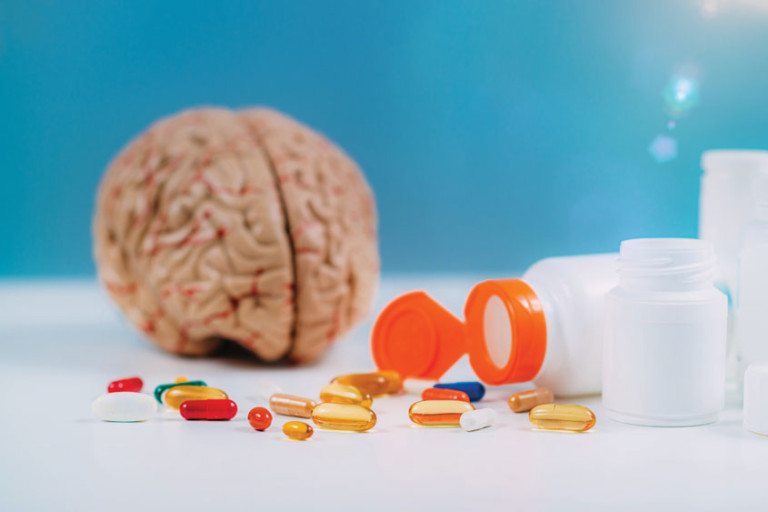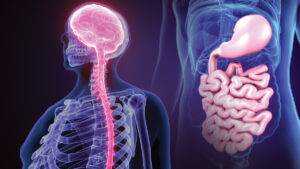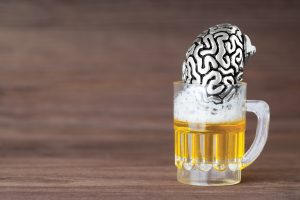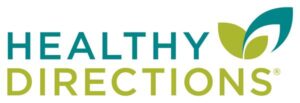Choline is the newest vitamin recognized as an essential nutrient and assigned a daily value of 550 mg/day—and deservedly so.1 Choline plays vital roles in human health and wellness and is needed in all stages of life. Furthermore, the phospholipid form of choline, known as α-Glyceryl Phosphoryl Choline (α-GPC), is the demonstrably preferred form of this nutrient. This article will review the research on α-GPC, but first let us examine the fundamentals of choline.
Introduction to Choline
Choline is an essential nutrient related to the water-soluble B-complex vitamins, folate, pyridoxine, and B12, and to the essential amino acid methionine.2,3 This essential nutrient is present in some foods and is also available as a dietary supplement. Choline is a primary source of methyl groups which are needed for various metabolic processes. The body needs choline to synthesize phosphatidylcholine and sphingomyelin, two major phospholipids vital for cell membranes. Therefore, all plant and animal cells need choline to preserve their structural integrity.4,5
Choline Adequacy
Humans can produce choline in the liver (typically as phosphatidylcholine), but the amount that the body naturally synthesizes is not sufficient to meet human needs.6 As a result, humans must obtain some choline from the diet. When a diet is deficient in folate, a B-vitamin that is also a methyl donor, the need for dietary choline rises because choline becomes the primary methyl donor.7
Recommended Intakes
Intake recommendations for choline and other nutrients are provided in the Dietary Reference Intakes (DRIs) developed by the Food and Nutrition Board (FNB) of the Institute of Medicine (IOM).8 Since insufficient data were available to establish an Estimated Average Requirement (EAR) for choline, the FNB instead established Adequate Intakes (AIs) for all ages that are based on the prevention of liver damage as measured by serum alanine aminostransferase levels.9 The table below lists the current AIs for choline.10
Choline Salts vs. α-GPC
Choline’s importance to human health is well established and widely recognized. It is also well established—but not as widely recognized—that common choline salts are not especially bioavailable or effective for cognitive function.11,12 By contrast, a 1993 study13 found that supplementation with radiolabeled α-GPC resulted in wide distribution the liver, kidney, lung, spleen and brain. Likewise, other researchers14 have suggested that demonstrated improvements from α-GPC supplementation may be due to increased bioavailability of choline for the synthesis of acetylcholine.
Cognition
Due to its ability to increase production of acetylcholine and phosphatidylcholine, α-GPC has demonstrated value for improving memory in healthy adults, as well as adults with dementia.15 First of all, α-GPC is also a precursor to membrane phospholipids. Therefore, it might improve neuronal functioning by improving neuronal membrane fluidity.16 In addition, levels of α-GPC-derived choline in the brain are thought to increase much more slowly, but also remain elevated for longer period of time.17
Cognitive Function in Healthy Young Subjects
A double-blind, placebo-controlled study18 with 19 physically active subjects (17 male, two female) was conducted to examine the effect of an acute ingestion of an α-GPC supplement (including CholineAid α-GPC, Chemi Nutra) on cognitive parameters. The results were that subjects consuming α-GPC supplement maintained measures of reaction time performance, while a significant decline in measures were observed in subjects consuming PL. Also, α-GPC supplementation resulted in an ability to maintain focus and alertness following an acute bout of exhaustion. In conclusion, ingestion of α-GPC supplement maintained reaction performance to both visual and auditory stimuli following a high-intensity bout of exhaustive exercise, while subjects consuming a placebo experienced significant reductions in performance.
Cognitive Function in Older Subjects
A comparative study19 was conducted to assess the effects of oxiracetam (a nootropic drug) versus α-GPC in brain aging. Forty male patients (aged 55-65 years) with senile organic brain syndrome (an older term used to describe a neurocognitive disorder) were randomly assigned to 1 g/day of either therapy for 12 weeks. Treatment with oxiracetam was associated with early improvement that was maintained for the duration of therapy, but whose effects ceased following discontinuation of therapy. In contrast, the response to α-GPC was slower but more sustained. Eight weeks after discontinuation of therapy, the clinical effects were as apparent as during the eighth week of treatment (P<0.001). Both agents were well tolerated and can be expected to be particularly effective in long-term patient management.
Cognitive Function Alzheimer’s Patients
To assess the efficacy and tolerability of α-GPC in the treatment of cognitive impairment due to mild to moderate Alzheimer’s Disease (AD), a multicenter, double-blind, randomized, placebo-controlled trial20 was conducted. A total of 261 patients (age range, 60-80 years) were treated with 400 mg α-GPC or placebo capsules, three times daily for 180 days. Results were that the average decrease in Alzheimer’s Disease Assessment Scale-Cognitive Subscale (ADAS-Cog) score in patients treated with α-GPC was 2.42 points after 90 days of treatment and 3.20 points at the end of the study (the lower the score, the better) (P < 0.001). However, in patients receiving placebo there was an increase in ADAS-Cog score. All other assessed parameters consistently improved after 90 and 180 days versus baseline in the α-GPC group, whereas in the placebo group they remained unchanged or worsened. In conclusion, this study suggests that α-GPC is clinical useful and tolerable in the treatment Alzheimer’s Disease. Other studies21,22 on the use of α-GPC in Alzheimer’s also showed positive results.
Cognitive Function in Stroke
In addition, stroke and transient ischemic attack (TIA) patients who receive α-GPC within 10 days post-stroke might have improved outcomes. Preliminary evidence suggests that these patients who get α-GPC 1,200 mg/day intramuscularly for 28 days, followed by 400 mg three times daily (1,200 mg/day) orally for six months, have improved recovery including improved cognitive and behavioral function.23
Exercise Performance
A randomized, double-blind, placebo-controlled, crossover study24 was conducted was to measure the acute effects of α-GPC supplementation in comparison to caffeine or placebo on mood, cognitive function and physiological performance. Twenty participants (10 male, 10 female; 22.0 ± 3.4 years of age) consumed 200 mg of α-GPC (CholineAid α-GPCb, Chemi Nutra, α-GPC-L), 400 mg of α-GPC (α-GPC-H), 200 mg of caffeine (CA), and a placebo (PL). Results were that serial subtraction test scores were 18.1 percent and 10.5 percent faster in the α-GPC-L group compared to CA and PL, respectively. Vertical Jump Peak Power was 8.5 percent higher in the α-GPC -L, 7.5 percent higher in the α-GPC-H and 2.0 percent higher in the CA group in comparison to PL. The group consuming CA had significantly higher scores on the VAS for jitteriness compared to α-GPC-H (p = 0.019).
Similar studies showed improvements in maximum velocity and maximum mechanical power on the countermovement jump (p < 0.05) with 250 mg α-GPC,25 improvements in counter movement jump with 300 mg α-GPC,26 significantly greater isometric mid-thigh pull peak force change from baseline (p=0.044) with 600 mg α-GPC,27 and significant differences in fatigue, plyometric push-up, mood change and reaction-time test).28
Growth Hormone
Growth hormone (GH) stimulates protein synthesis in muscle, stimulates the release of fatty acids from adipose tissue (aka, fat), helps maintain bone health, and it inhibits the uptake of glucose by muscle while stimulating uptake of amino acids. However, GH secretion rates decline 83 percent by age 55. The good news is that α-GPC may help to promote GH release. It works by increasing acetylcholine release,29 which in turn potentiates the stimulatory effect of growth hormone releasing hormone.30,31
The bottom-line benefits were seen in a randomized, placebo-controlled, crossover study32 which examined the effects of a supplement containing primarily 600 mg/day α-GPC or placebo on serum GH levels, explosive performance, and post-exercise substrate oxidation in seven men with at least two years of resistance training experience. The supplement was taken 90-minutes prior to completing six sets times 10 repetitions of squats at 70 percent of their pre-determined 1-repetition maximum. Results were that, compared to baseline (pre) values, peak GH increased 44-fold during α-GPC vs. 2.6-fold during placebo. These data indicate that a single 600 mg dose of α-GPC, when administered 90 minutes prior to resistance exercise, increases post-exercise serum GH.
Autism
In addition to behavioral issues, mental developmental delay and cognitive dysfunction are usually diagnosed in childhood autism patients. A study33 was conducted to evaluate the therapeutic effects of α-GPC during an eight-week course of supplementation using 400 mg/day in 20 children (aged 3–8 years) with autism. Results showed positive effects observed at the end of therapeutic course in 89 percent of the patients: significant improvement in 61 percent and minimal improvement in 28 percent. Statistically significant positive changes in the patients’ state were observed in the general improvement of behavior (p < 0.001), development of social and communicative skills, as well as self-service, reduction of marked speech disturbances (p < 0.001) and motor sphere dysfunction (p < 0.001), enhancement of learning activity and productivity (p < 0.05). Improvement was also seen in concentration, imitation, social play activity, speech understanding, thinking and emotional response.
Sleep
Rapid eye movement (REM) sleep is a unique phase of sleep during which the sleeper is likely to dream more vividly. This phase is characterized most notably by an abundance of the acetylcholine. The different theories about REM sleep’s function are that it helps in forming new memories, stimulates the central nervous system, and restores brain chemistry to a normal balance.34 A lack of REM sleep can result in mild psychological disturbances, such as anxiety, irritability, hallucinations and difficulty concentrating may develop and appetite may increase.
A single-blind controlled study35 was conducted in eight healthy young male subjects to assess the effect of α-GPC, on sleep. α-GPC was supplemented in doses of 400 mg, three times daily (1,200 mg total). The study examined whether short-term treatment modified REM sleep parameters. The results were that REM density was increased, which returned to pre-study levels once supplementation ceased.
Conclusion
Choline is a vital nutrient for human health and wellness and is needed in all stages of life. The phospholipid form of choline known as α-Glyceryl Phosphoryl Choline (α-GPC) is the demonstrably preferred form of this nutrient. Research demonstrates that α-GPC provides benefits for cognition (young and older people), exercise performance, promoting growth hormone release, behavioral disorders in autism, and supporting REM in sleep. VR
References
1 Choline: Fact Sheet for Health Professionals. National Institutes of Health, Office of Dietary Supplements. Updated July 10, 2020. Retrieved September 8, 2020 from https://ods.od.nih.gov/factsheets/Choline-HealthProfessional/.
2 Blusztajn, J. K. Choline, a vital amine. Science 8-7-1998;281(5378):794-795.
3 Albright, C. D. Tsai A. Y. Friedrich C. B. Mar M. H. and Zeisel S. H. Choline availability alters embryonic development of the hippocampus and septum in the rat. Brain Res Dev Brain Res 1999;113:13-20.
4 Zeisel SH, Corbin KD. Choline. In: Erdman JW, Macdonald IA, Zeisel SH, eds. Present Knowledge in Nutrition. 10th ed. Washington, DC: Wiley-Blackwell; 2012:405-18.
5 Institute of Medicine. Food and Nutrition Board. Dietary Reference Intakes: Thiamin, Riboflavin, Niacin, Vitamin B6, Folate, Vitamin B12, Pantothenic Acid, Biotin, and Choline. Washington, DC: National Academy Press; 1998.
6 Zeisel SH. Choline. In: Ross AC, Caballero B, Cousins RJ, Tucker KL, Ziegler TR, eds. Modern Nutrition in Health and Disease. 11th ed. Baltimore, MD: Lippincott Williams & Wilkins; 2014:416-26.
7 Zeisel SH, Corbin KD. Choline. In: Erdman JW, Macdonald IA, Zeisel SH, eds. Present Knowledge in Nutrition. 10th ed. Washington, DC: Wiley-Blackwell; 2012:405-18.
8 Institute of Medicine. Food and Nutrition Board. Dietary Reference Intakes: Thiamin, Riboflavin, Niacin, Vitamin B6, Folate, Vitamin B12, Pantothenic Acid, Biotin, and Choline. Washington, DC: National Academy Press; 1998.
9 Institute of Medicine. Food and Nutrition Board. Dietary Reference Intakes: Thiamin, Riboflavin, Niacin, Vitamin B6, Folate, Vitamin B12, Pantothenic Acid, Biotin, and Choline. Washington, DC: National Academy Press; 1998.
10 Institute of Medicine. Food and Nutrition Board. Dietary Reference Intakes: Thiamin, Riboflavin, Niacin, Vitamin B6, Folate, Vitamin B12, Pantothenic Acid, Biotin, and Choline. Washington, DC: National Academy Press; 1998.
11 Tan J, Bluml S, Hoang T, et al. Lack of Effect of Oral Choline Supplement on the Concentrations of Choline Metabolites in Human Brain. Magn Reson Med. 1998 Jun;39(6):1005-10.
12 Lippelt DP, van der Kint S, van Herk K, Naber M. No Acute Effects of Choline Bitartrate Food Supplements on Memory in Healthy, Young, Human Adults. PLoS One. 2016; 11(6): e0157714.
13 Abbiati G, Fossati T, Lachmann G, et al. Absorption, tissue distribution and excretion of radiolabelled compounds in rats after administration of [14C]-L-alpha-glycerylphosphorylcholine. Eur J Drug Metab Pharmocokinet. 1993; 18(2):173-180.
14 Bellar D, LeBlanc NR, Campbell B. The effect of 6 days of alpha glycerylphosphorylcholine on isometric strength. Journal of the International Society of Sports Nutrition. 2015;12(1):42.
15 Gatti G, Barzaghi N, Acuto G, et al. A comparative study of free plasma choline levels following intramuscular administration of L-alpha-glycerylphosphorylcholine and citocholine in normal volunteers. Int J Clin Pharmacol Ther Toxicol 1992;30:331-5.
16 Di Perri R, Coppola G, Ambrosio LA, et al. A multicentre trial to the evaluate the efficacy and tolerability of alpha-glycerylphosphorylcholine versus cytosine diphosphocholine in patients with vascular dementia. J Int Med Res 1991;19:330-41.
17 Gatti G, Barzaghi N, Acuto G, et al. A comparative study of free plasma choline levels following intramuscular administration of L-alpha-glycerylphosphorylcholine and citocholine in normal volunteers. Int J Clin Pharmacol Ther Toxicol 1992;30:331-5.
18 Hoffman JR, Ratamess NA, Gonzalez A, Beller NA, Hoffman MW, Purpura M, Jäger R. The effects of acute CRAM supplementation on reaction time and subjective measures of focus and alertness in healthy college students. J Int Soc Sports Nutr. 2010; 7(Suppl 1): P12.
19 Abbati C, Rondi G, Rosola R, Vavassori F, Bosio A. Nootropic therapy of cerebral aging. Adv Ther. 1991;8(6):268-76.
20 Moreno MDJ. Cognitive improvement in mild to moderate Alzheimer’s dementia after treatment with the acetylcholine precursor choline alfoscerate: a multicenter, double-blind, randomized, placebo-controlled trial. Clin Ther. 2003;25:178-193.
21 Ban TA, Panzarasa RM, Borra S, Del Duchetto D, Fjetland O. Choline alphoscerate in elderly patients with cognitive decline due to dementing illness. New Trends in Clinical Neuropharmacology. 1991;5(3/4):1-33.
22 Amenta F, Carotenuto A, Fasanaro AM, Rea R, Traini E. The ASCOMALVA trial: association between the cholinesterase inhibitor donepezil and the cholinergic precursor choline alphoscerate in Alzheimer’s disease with cerebrovascular injury: interim results. J Neurol Sci. 2012 Nov 15;322(1-2):96-101.
23 Barbagallo Sangiorgi G, Barbagallo M, Giordano M, et al. Alpha-glycerophosphocholine in the mental recovery of cerebral ischemic attacks: An Italian multicenter clinical trial. Ann N Y Acad Sci 1994;717:253-69.
24 Parker AG, Byars A, Purpura M, Jäger R. The effects of alpha-glycerylphosphorylcholine, caffeine or placebo on markers of mood, cognitive function, power, speed, and agility. J Int Soc Sports Nutr. 2015; 12(Suppl 1): P41.
25 Marcus L, Soileau J, Judge LW, Bellar D. Evaluation of the effects of two doses of alpha glycerylphosphorylcholine on physical and psychomotor performance. J Int Soc Sports Nutr. 2017 Oct 5;14:39.
26 Rickard AJ. α-glycerophosphorylcholine and the effects on anaerobic indices. Master of Science thesis, Department of Nutrition and Kinesiology, University of Central Missouri. May 2017: 51 pgs.
27 Bellar D, LeBlanc N, Judge LW, David GR. The effect of six days of Alpha-GPC supplementation on isometric force production. Poster presentation, International Society of Sports Nutrition Conference; 2015.
28 Cruse JL. The Acute Effects Of Alpha-Gpc On Hand Grip Strength, Jump Height, Power Output, Mood, And Reaction-Time In Recreationally Trained, College-Aged Individuals. Online Theses and Dissertations. 2018; 518. https://encompass.eku.edu/etd/518.
29 Ceda GP, Ceresini G, Denti L, Marzani G, Piovani E, Banchini A, Tarditi E, Valenti G. alpha-Glycerylphosphorylcholine administration increases the GH responses to GHRH of young and elderly subjects. Horm Metab Res. 1992 Mar;24(3):119-21.
30 Massara F, Ghigo E, Demislis K, Tangolo D, Mazza E, Locatelli V, Müller EE, Molinatti GM, Camanni F. Cholinergic involvement in the growth hormone releasing hormone-induced growth hormone release: studies in normal and acromegalic subjects. Neuroendocrinology. 1986;43: 670-5.
31 Ceda GP, Ceresini G, Denti L, Magnani D, Marchini L, Valenti G, Hoffman AR. Effects of cytidine 5’-diphosphocholine administration on basal and growth hormone-releasing hormone-induced growth hormone secretion in elderly subjects. Acta Endocrinol (Copenh). 1991 May;124(5):516-20.
32 Ziegenfuss T, Landis J, Hofheins J: Acute supplementation with alpha-glycerylphosphorylcholine augments growth hormone response to, and peak force production during, resistance exercise. J Int Soc Sports Nutr. 2008, 5(Suppl 1):P15.
33 Krasnoperova MG, Bashina VM. Gliatilin in Childhood Autism Treatment. Psychopharmacology and Biological Narcology. 2005;5(2).
34 Vitelli Romeo. Exploring the mystery of REM sleep. Psychology Today. March 25, 2013. Retrieved January 16, 2018 from www.psychologytoday.com/blog/media-spotlight/201303/exploring-the-mystery-rem-sleep.
35 Ferini Stramba L, Zucconi M, Castronovo V and others. Choline alfoscerate: short-term effect on sleep in healthy subjects. Curr Ther Research. 1991;49(4):610-15.
Gene Bruno, MS, MHS, the dean of academics for Huntington University of Health Sciences, is a nutritionist, herbalist, writer and educator. For more than 30 years he has educated and trained natural product retailers and health care professionals, has researched and formulated natural products for dozens of dietary supplement companies, and has written articles on nutrition, herbal medicine, nutraceuticals and integrative health issues for trade, consumer magazines and peer-reviewed publications. He can be reached at gbruno@hchs.edu.




![[Extra! Extra!] Talking Gut-Brain Axis Nutrition With NOW’s Neil Levin](https://vitaminretailer.com/wp-content/uploads/2024/03/GutBrainAxis-300x131.jpg)








